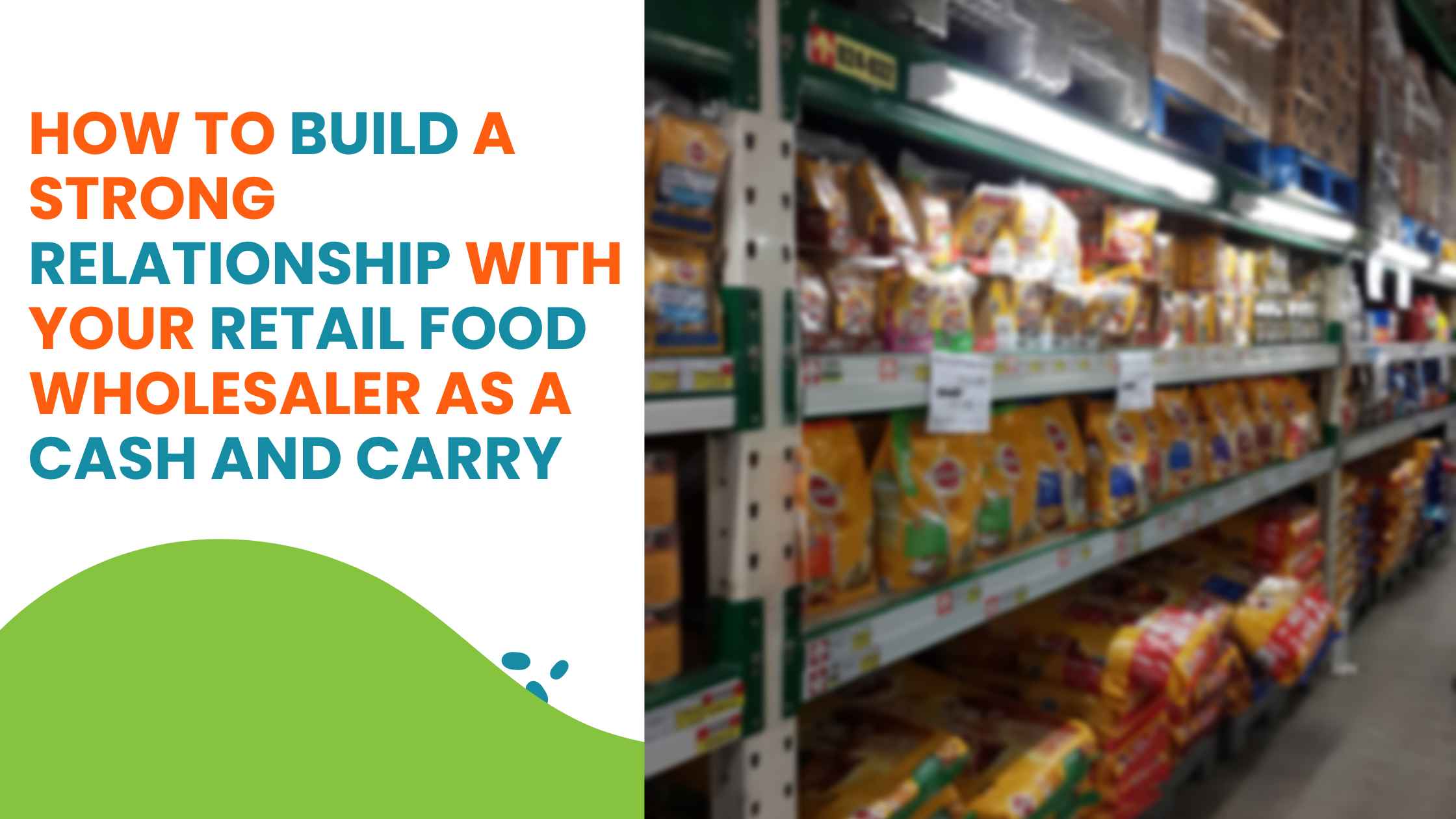The relationship between a retailer and their food wholesaler is one that is essential to the success of their cash and carry business. If you expect to be able to supply all your customers with great products and services, then it’s important that you have a good working relationship with your wholesale supplier. Although there are many different types of wholesalers out there, each one has its own strengths and weaknesses – so learn about them before starting your own relationship with any particular company!
You need to have a good relationship with your food wholesaler.
You need to have a good relationship with your retailer food wholesaler if you want to succeed with cash and carry business.
A strong relationship with the right person will ensure that all orders are filled on time, they deliver quality products and they treat you as an important customer.
When it comes to building a good relationship with your wholesale supplier, there are some steps that can help build this kind of bond:
1. Establishing trust
The first thing that needs to be done in order for your relationship with the wholesaler to go well is establishing trust between both parties by showing that they’re willing to work together towards common goals. This means being honest about what happens when things don’t go according to plan instead of blaming one another or trying hard not to get along because things aren’t working out perfectly all around! It also means admitting mistakes instead of blaming someone else (or yourself).
2. Know Your Wholesaler’s Strengths
- Know what they are good at.
- Know what they are not good at.
- Know how to work with them.
3. Be a good listener
One of the best ways to build a relationship with your wholesaler is by being a good listener. Your retailer needs to feel like you care about their business, so make sure that your questions are thought out and well-intentioned. It’s also important not to be afraid of asking questions or making suggestions; wholesalers want their customers to be engaged in conversation with them so they can provide the best experience possible for both parties involved.
4. Build trust and show commitment
You should also make sure that your client is committed to your success. This can be done through a number of ways, but the most important thing is that you show them that you are trustworthy and reliable.
Make sure they know you are consistent with their orders, so they know what products are available when they need them.
5. Add value through localised knowledge
If you’re a small business looking to expand, there’s no better way than by building relationships with local food wholesalers. To get started, you should start by asking questions about their customers and competitors in your area. If they have any experience with importing or exporting from other countries (or even selling locally), ask them what type of products those regions produce and then ask if there are any ways in which those products can benefit from being sold here in the UK.
6. Pay on time, every time
The most important thing you can do is to pay your wholesale food supplier on time, every time. This means that you need to make sure that they get their money by the third of every month or they will contact your customer directly to ask them if they would be willing to wait another week or two before receiving payment. If there are any delays in payment, it’s important that you let your wholesaler know right away so that they can take appropriate steps in order not only to protect themselves but also to keep their relationship with you strong and healthy!
7. Ask questions, don’t just expect the answers to be there.
Don’t assume you know everything or that your knowledge is complete. You may find out something new and interesting about the industry and want to share it with your Wholesale Food Wholesaler, but if they don’t know anything about it then neither do they! This will build up trust and loyalty in your relationship with them, as well as help them become educated on new trends within the industry so that both parties can benefit from each other’s expertise.
Another thing I would recommend doing when seeking advice from a retail food wholesaler is asking for help because sometimes all this information can be overwhelming at first glance.
8. Being open minded
Someone who wants their job done right should always be open-minded about what others might have learned from experience over time so long as there isn’t anything illegal happening here either way but even then sometimes things happen unexpectedly so being willing accept these types Of events without getting upset instead helps keep everyone calm during stressful situations like these ones where nerves tend.
9. Don’t be afraid to disagree with your wholesaler
A strong relationship with your food wholesaler is a two-way street. If you think something is wrong or needs changing, don’t hesitate to speak up!
it’s communication between both parties so that everyone knows exactly what’s going on at all times.
10. Establish consistent communication lines
Don’t be afraid to ask for help. This can be as simple as asking your wholesaler if they have any ideas on how you might improve your store’s operations, or whether they’d like to join the discussion about setting a new price structure for produce that is in season at the time of year when it’s available.
It could also mean asking them if there are any connections between other retail food businesses in their field that might be helpful to know about, for example, offers discounts on certain products etc.
11. Be clear about your expectations from a partnership
When you find the right wholesaler, it’s important to let them know what your expectations are. Here are some examples of what they might expect from their relationship with you:
- An ability to provide a consistent supply of quality products at competitive prices
- On-time delivery of orders and payments
- Help set up new accounts or expand existing ones
12. Treat them like partners
As you work with your wholesale food partners, it’s crucial that you always treat them as partners. They need to know that they are welcome at any time and can ask questions or give feedback on anything they need help with. If you feel like something isn’t working out between the two of you, speak up! Don’t wait until later if there is something that needs fixing now then fix it!
Read More: Why Frozen Food is a Smart Choice for Your Business
Conclusion
The key to building a great relationship with your wholesaler is making sure that they feel valued and respected. After all, if you don’t trust them, your business will suffer. So make them feel like part of the team by showing that they can count on you for honest advice and feedback as well as reliable service delivery.





